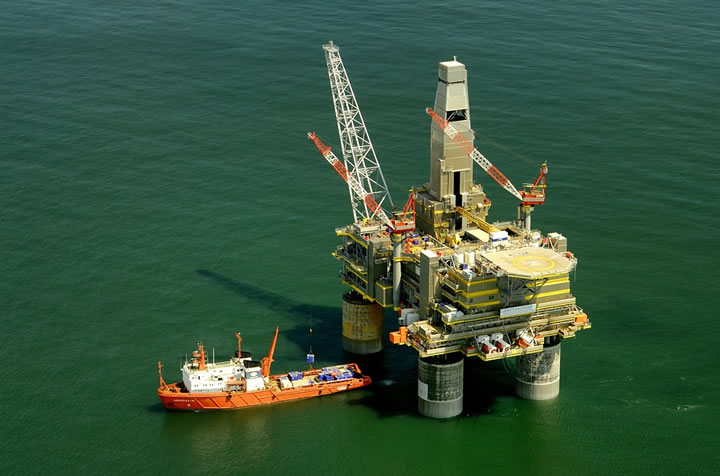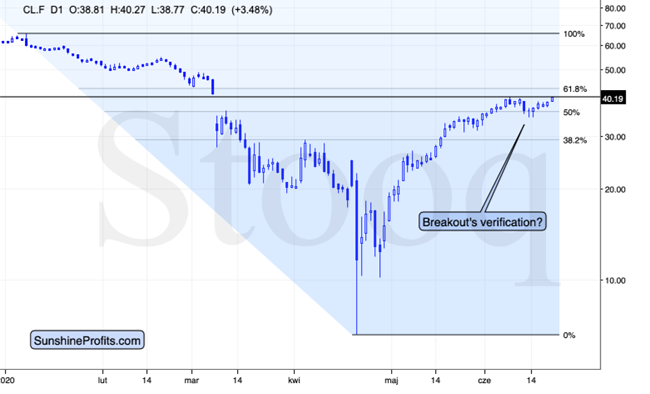Getting Ahead of the Game: What Determines the Prices of Oil?
Commodities / Crude Oil Jul 12, 2020 - 04:52 PM GMTBy: Dylan_Moran
Oil is a commodity that plays an indisputable role in the global economy. At the start of the 20th century, the oil industry went into mass production, thus giving birth to what we refer to as the modern era of oil consumption. Gradually, coal was starting to take a backseat to it and oil became the world’s #1 fuel source and the undisputed king of commodity trading.
To this very day, this remains unchanged. The only question is, what drives the prices of oil?

1. Supply and demand
Just like everywhere else, supply and demand is arguably the #1 driving force behind the oil’s prices. When the market starts thirsting for oil, the prices go up (and vice-versa). In this specific case, however, it gets a little bit trickier. This is due to the futures contract that binds the dealings between both the buyers buyers and the sellers. In other words, when entering an agreement, both interested parties agree to hold up to their end of the bargain and complete the transaction at the predetermined time and value.
What may appear to be limiting at first glance, proves to be more than useful for the purpose of safeguarding against future price fluctuations. Coupled with an economic calendar to alert you of major economic releases, this also opens up the doors to speculative trades if you trust your instinct that’s telling you whether the prices will go up or down in the future. Of course, a major dramatic event can also influence the market psychology, which could end up driving people to sell out of fear.
2. Sentiment
And so we’ve arrived at another major price-determining factor: sentiment. Ever heard of the expression that one’s perception of reality often determines the outcome? A self-fulfilling prophecy would be a good way to describe this phenomenon. When it comes to oil trading, a similar scenario occurs when people decide to snap up the contracts in advance.
Does the theory hold up in practice?
More often than not, it does. With that being said, there are some notable exceptions to the rule. If we look at the history of oil ever since it became the world’s leading commodity in the beginning of the 20th century, there have been major spikes in its value. This is a reoccurring pattern that happens every 30-or-so years. However, the unpredictable nature of the global economy only serves to add an extra layer of complexity, which is fabulous for those who enjoy cracking its mysteries. Remember, the market’s key driving factors should be taken more as loose guidelines as opposed to fixed rules.
The issue of cartels
Did you know that one group collectively referred to as OPEC controls as much as 40% of the world’s oil supply? It consists of the largest international players coming from Kuwait, Iran, Venezuela, Saudi Arabia and others. By joining such a union, it’s possible to reap bigger profits compared to entering the market individually. Those who are not in it, however, may consider this to be an unethical strategy.

Where to check the prices of oil?
The fastest and easiest way is to head on over to a commodity trading platform and check the prices of oil in real-time. If you’re a complete beginner who prefers to learn the ins and outs of commodity trading through practical experience, the good news is that these tend to feature automated loss protection algorithms. In other words, an effective safeguard mechanism that automatically sells the commodity in the event that prices dip too low.
Conclusion
For those who follow the global trends and watch the news, combined with a little bit of speculation, oil trading can be a lucrative endeavor. Once you learn the ropes, you’ll be able to utilize the knowledge you’ve gained for years to come.
By Dylan M.
© 2020 Copyright Dylan M. - All Rights Reserved Disclaimer: The above is a matter of opinion provided for general information purposes only and is not intended as investment advice. Information and analysis above are derived from sources and utilising methods believed to be reliable, but we cannot accept responsibility for any losses you may incur as a result of this analysis. Individuals should consult with their personal financial advisors.
© 2005-2022 http://www.MarketOracle.co.uk - The Market Oracle is a FREE Daily Financial Markets Analysis & Forecasting online publication.



